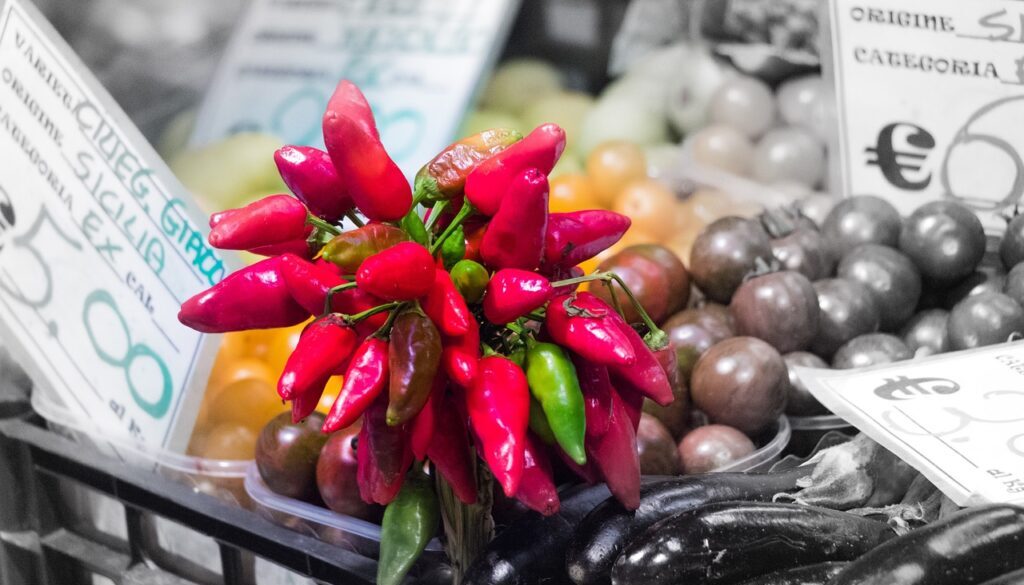Spice In Your Life For Longevity
By Aparna Mele

Hot peppers are a great way to add flavor to your recipes, but we now know that they may have a surprisingly positive effect on your health too. Hot peppers, like jalapeños and chills, are rich in a component called capsaicin, a fiery substance which gives you that scorched burning feeling in your mouth. When it comes to the heart, capsaicin and turmeric directly impact the body’s circulation. Capsaicin in hot peppers causes the blood vessels to dilate, and this contributes to lowering blood pressure lowering and also may help prevent blood clots. Turmeric (curcumin), another-well known spice, has powerful anti-inflammatory effects, helping to reverse damage to blood vessels. Research at the University of Maryland shows that it may also help lower cholesterol.
While there is no replacing exercise and avoiding excess intake of processed foods, adding spice to your recipes can speed up weight loss. Research suggests that when you eat hot peppers, it increases your body heat, which boosts metabolism up to five percent, and increases fat burning up to 16 percent, which translates into your body is burning calories more quickly. Capsaicin promotes the stimulation of brown fat, which aids in metabolism and this is probably why we feel hot after eating spicy foods. Spicy food may also help you with your food cravings. A study from Purdue University in 2011 also found that people felt more satiated after eating spicy foods, suggesting that capsaicin can decrease appetite and lower the number of calories you consume. An earlier study found that people consumed less fat after eating a lot of hot peppers. An additional explanation is that the burning in your mouth slows food consumption. Eating slowly causes you to notice your body’s satiety cues sooner.
The family of molecules to which capsaicin belongs, the vanilloids, have been shown to bind to proteins in the cancer cell mitochondria to trigger cell death, without harming surrounding healthy cells, and a Cedars-Sinai study found that capsaicin killed 80 percent of prostate cancer cells in mice, while leaving normal cells unharmed. Spicy foods give you a longevity boost too! A 5 year study in 2015 that included over half a million Chinese people found that compared to those with a milder palate., people who consumed very spicy foods six times a week reduced their risk of premature death by 14% over the course of the study and 10% if spicy foods were eaten just two days a week.
Sorry to say, bell peppers and crushed black pepper are not considered spicy foods, as they do not contain capsaicin. Spicy food should heat things up in your mouth even if you just use a small amount of something like crushed red pepper or ground cayenne. if you’re new to eating spicy foods, increase your intake slowly to minimize undesirable symptoms of stomach pain, diarrhea, and vomiting in those who consume extreme amounts. Try including hot peppers in your diet two to three times a week, even if sautéed or cooked as they will still retain their healthful benefits.
Spices can really be incorporated into any diet as a satisfying and healthy addition; and can help you cut down on the amount of unhealthy fats and sweets that are too easily added as a quick fix for taste. So, ditch the sugar, add some spice, expand your culinary palate, and extend your life!
Speaking of spices, take a look at this yummy recipe for beets with pecorino, pecans, and Shishito peppers.



